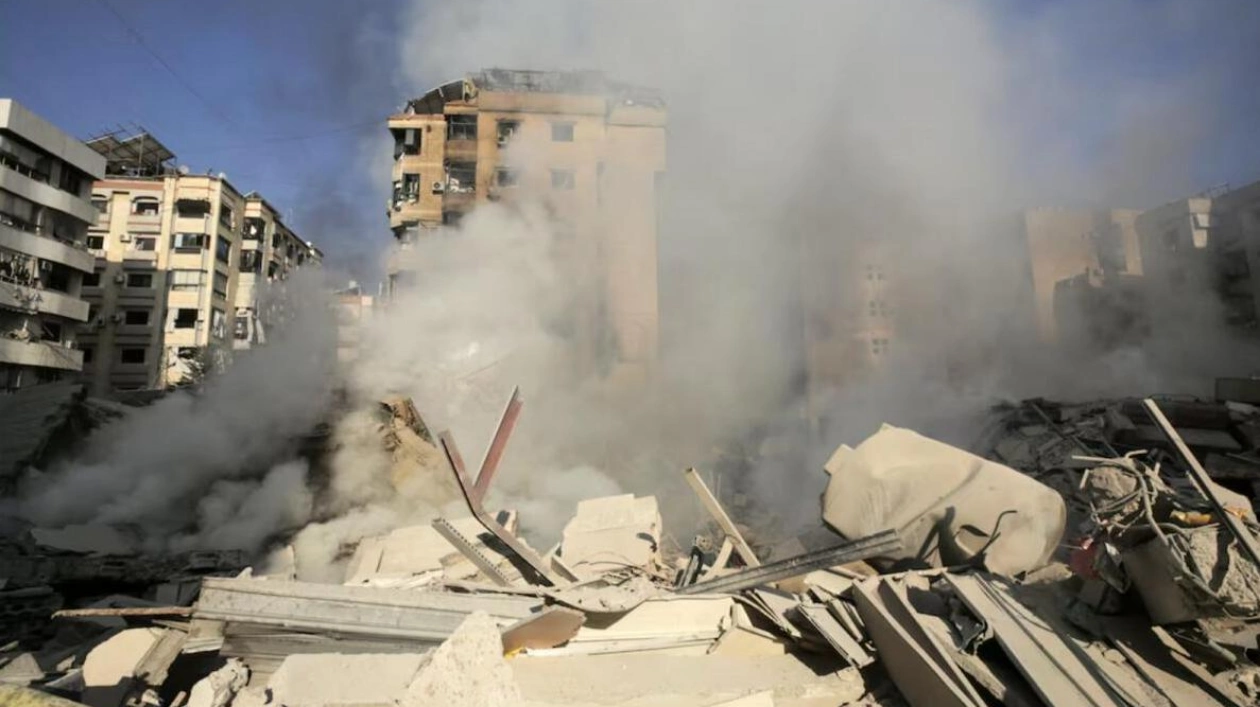Lebanese expatriates residing in the UAE are facing a difficult situation as they attempt to evacuate their families from Lebanon. While some are frantically trying to secure flights, others are advising their relatives to stay put for the time being, considering the unstable conditions at Beirut's airport. The situation has escalated dramatically, with recent air strikes intensifying in the southern suburbs of Beirut, primarily targeting areas controlled by Hezbollah. Over the weekend, heavy bombardments led to widespread panic, forcing numerous residents into the streets and makeshift shelters.
Adding to the tension, Hezbollah confirmed the death of its leader, Hassan Nasrallah, earlier in the day. This announcement followed Israel's military claim on Saturday that it had killed Nasrallah amid ongoing strikes in the southern suburbs of Beirut. Maryam, a 45-year-old Lebanese expatriate who has lived in Dubai for nearly twenty years, expressed her distress, saying she "could only watch the news in agony." Fortunately, her own family is safe in Dubai, but her immediate concern is for her mother and mother-in-law, who are still in Beirut. After contacting them, she was relieved to learn that they are currently out of harm's way.
“No, we’re not looking to evacuate them right now,” Maryam told Khaleej Times on Saturday. She explained that her mother and mother-in-law are in a safer area and that they will only consider flying them out of Beirut once the airport situation stabilizes. Maryam added, “Most commercial airlines have cancelled their flights, with only Iraqi and Iranian airlines still operating. We heard that Israel has threatened to bomb the airport if Iran transfers weapons to Hezbollah through Beirut.” She emphasized the importance of caution, saying, “We’re not taking any risks at the moment—everything is volatile. I truly believe it’s safer for them to stay where they are for now. We’ll arrange for them to leave Lebanon when it’s safe to do so.”
As air strikes and rocket fire between Israel and Hezbollah escalate, flights between the UAE and Lebanon remain suspended. UAE-based airlines have extended their flight cancellations to Beirut until October 1. Other Lebanese residents in the UAE are urging their families back home to move to safer areas in northern Lebanon. Ahmed A.N., who has lived in the Emirates for the past 12 years and hails from the border town of Bint Jabeil, expressed deep concern for his grandparents who still live in Lebanon. “My grandparents and relatives have already relocated to the northern part of the country, away from the conflict zone,” he said. He noted that many people from his town are also seeking safety, often finding shelter wherever they can. “They are currently staying in a hotel and are waiting for the chance to relocate, either to the UAE or to relatives in Canada,” Ahmed shared.
Unfortunately, he has faced challenges in getting his grandparents to the UAE. “With flights closed, it seems impossible at the moment,” he shared, adding that ticket prices for the next available flights have skyrocketed. “There’s no guarantee that flights will resume soon. The situation is so unpredictable—one moment it feels like you can make arrangements, and the next, everything seems to be falling apart.” Meanwhile, government-led mass evacuations are also encountering difficulties due to the lack of available commercial flights. Felicitas Bay, the former Philippine labour attaché to Dubai, announced during a press briefing in Manila on Saturday that the repatriation of 15 overseas Filipino workers (OFWs) in Lebanon, originally scheduled for Thursday, has been postponed to October 2.
Bay, who is now the officer-in-charge and undersecretary of the Philippine Department of Migrant Workers (DMW), explained that the repatriation is voluntary since the Philippine government has raised the alert level only to Level 3. The Philippine Embassy in Lebanon has advised Filipinos to remain vigilant in the current situation. “The repatriation has been reset for October 2, so our kababayan (countrymen) will arrive in the Philippines – barring unforeseen circumstances – on October 3.”






